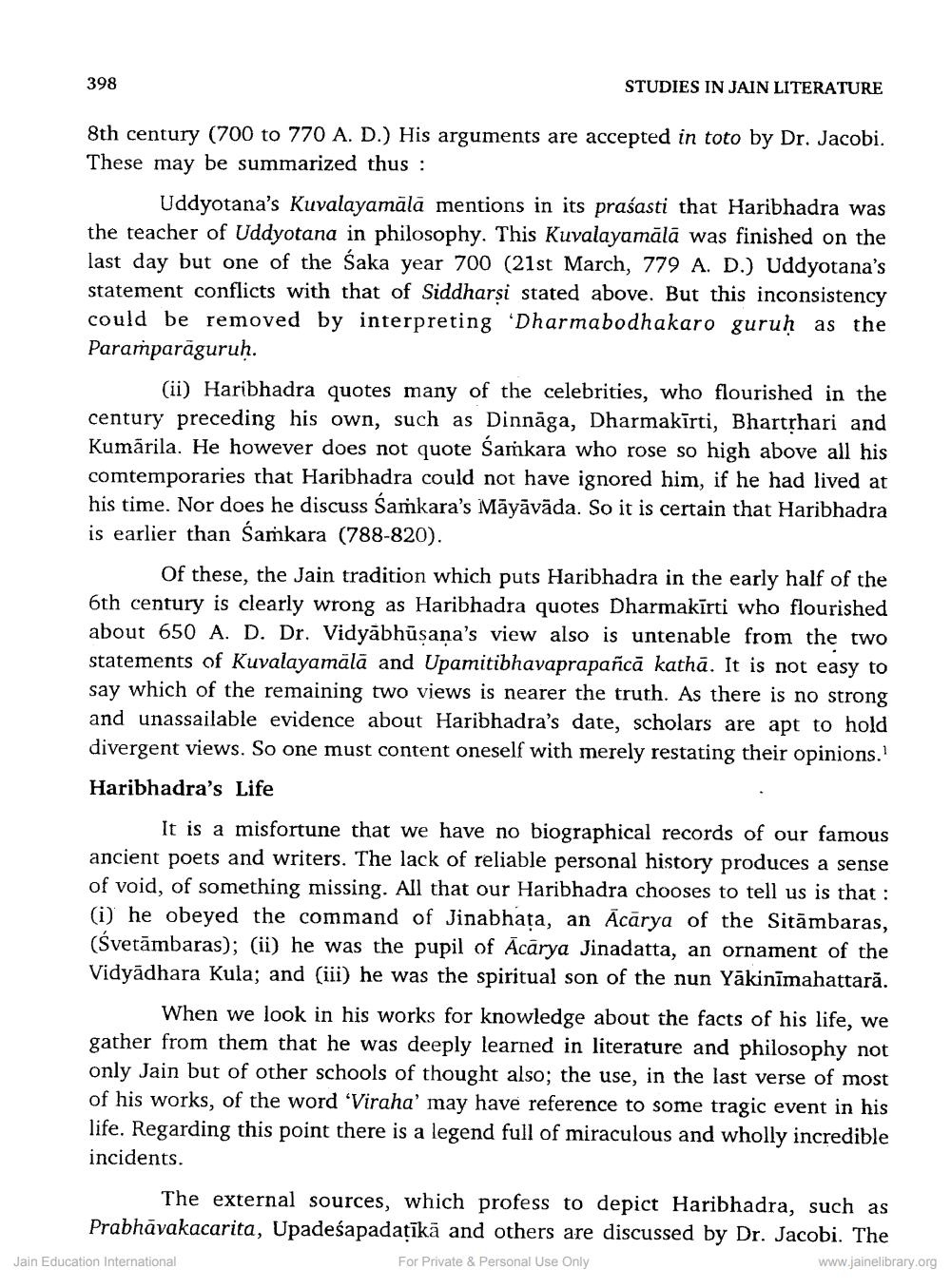________________ 398 STUDIES IN JAIN LITERATURE 8th century (700 to 770 A. D.) His arguments are accepted in toto by Dr. Jacobi. These may be summarized thus : Uddyotana's Kuvalayamala mentions in its prasasti that Haribhadra was the teacher of Uddyotana in philosophy. This Kuvalayamala was finished on the last day but one of the Saka year 700 (21st March, 779 A. D.) Uddyotana's statement conflicts with that of Siddharsi stated above. But this inconsistency could be removed by interpreting 'Dharmabodhakaro guruh as the Paramparaguruh. (ii) Haribhadra quotes many of the celebrities, who flourished in the century preceding his own, such as Dinnaga, Dharmakirti, Bharthari and Kumarila. He however does not quote Sankara who rose so high above all his comtemporaries that Haribhadra could not have ignored him, if he had lived at his time. Nor does he discuss Samkara's Mayavada. So it is certain that Haribhadra is earlier than Samkara (788-820). Of these, the Jain tradition which puts Haribhadra in the early half of the 6th century is clearly wrong as Haribhadra quotes Dharmakirti who flourished about 650 A. D. Dr. Vidyabhusana's view also is untenable from the two statements of Kuvalayamala and Upamitibhavaprapanca katha. It is not easy to say which of the remaining two views is nearer the truth. As there is no strong and unassailable evidence about Haribhadra's date, scholars are apt to hold divergent views. So one must content oneself with merely restating their opinions. Haribhadra's Life It is a misfortune that we have no biographical records of our famous ancient poets and writers. The lack of reliable personal history produces a sense of void, of something missing. All that our Haribhadra chooses to tell us is that: (i) he obeyed the command of Jinabhata, an Acarya of the Sitambaras, (Svetambaras); (ii) he was the pupil of Acarya Jinadatta, an ornament of the Vidyadhara Kula; and (iii) he was the spiritual son of the nun Yakinimahattara. When we look in his works for knowledge about the facts of his life, we gather from them that he was deeply learned in literature and philosophy not only Jain but of other schools of thought also; the use, in the last verse of most of his works, of the word 'Viraha' may have reference to some tragic event in his life. Regarding this point there is a legend full of miraculous and wholly incredible incidents. The external sources, which profess to depict Haribhadra, such as Prabhavakacarita, Upadesapadatika and others are discussed by Dr. Jacobi. The For Private & Personal Use Only www.jainelibrary.org Jain Education International




